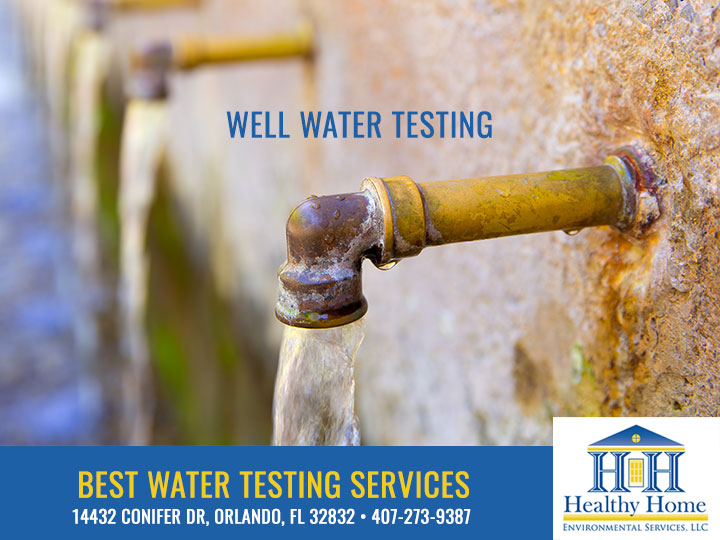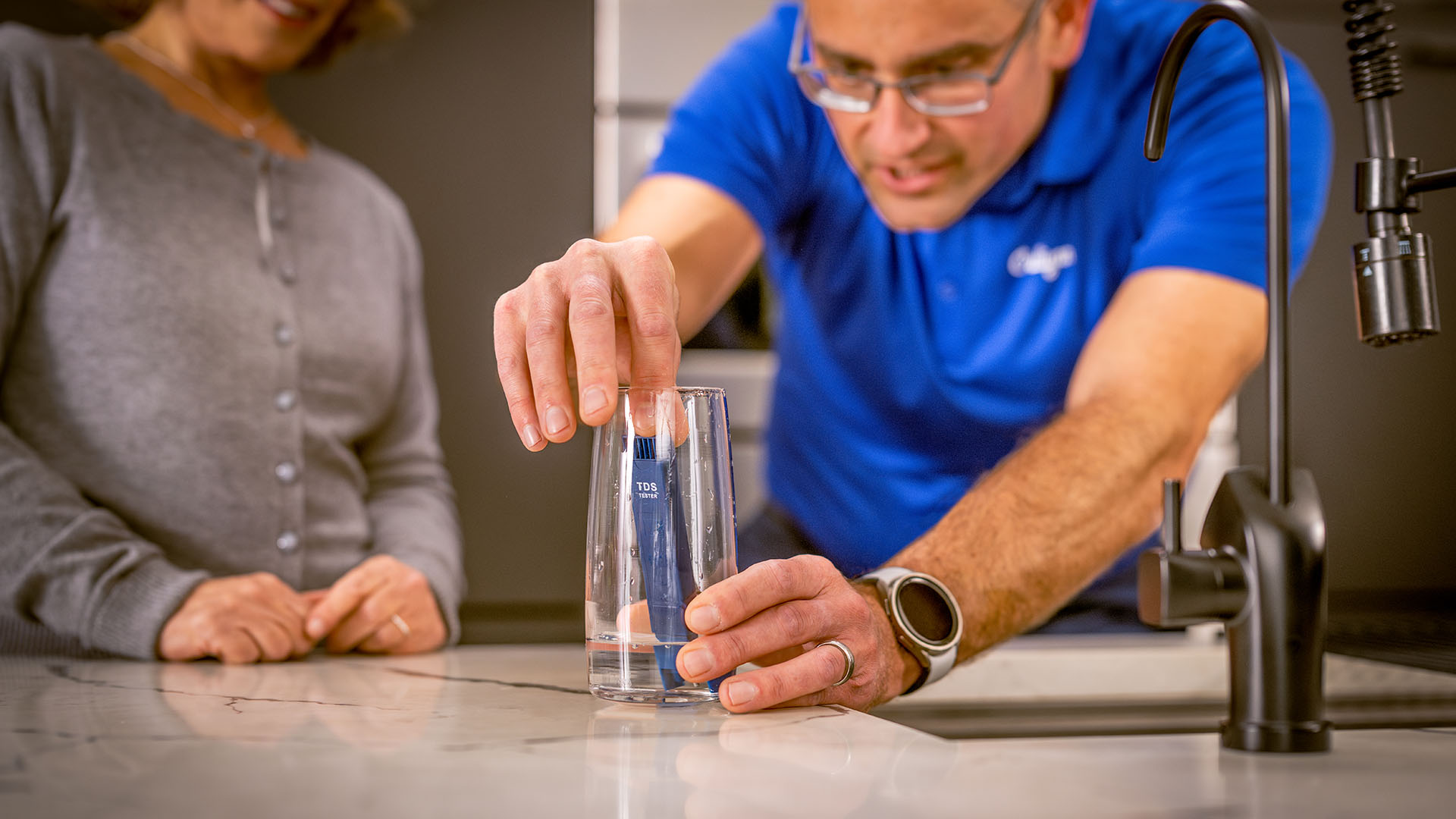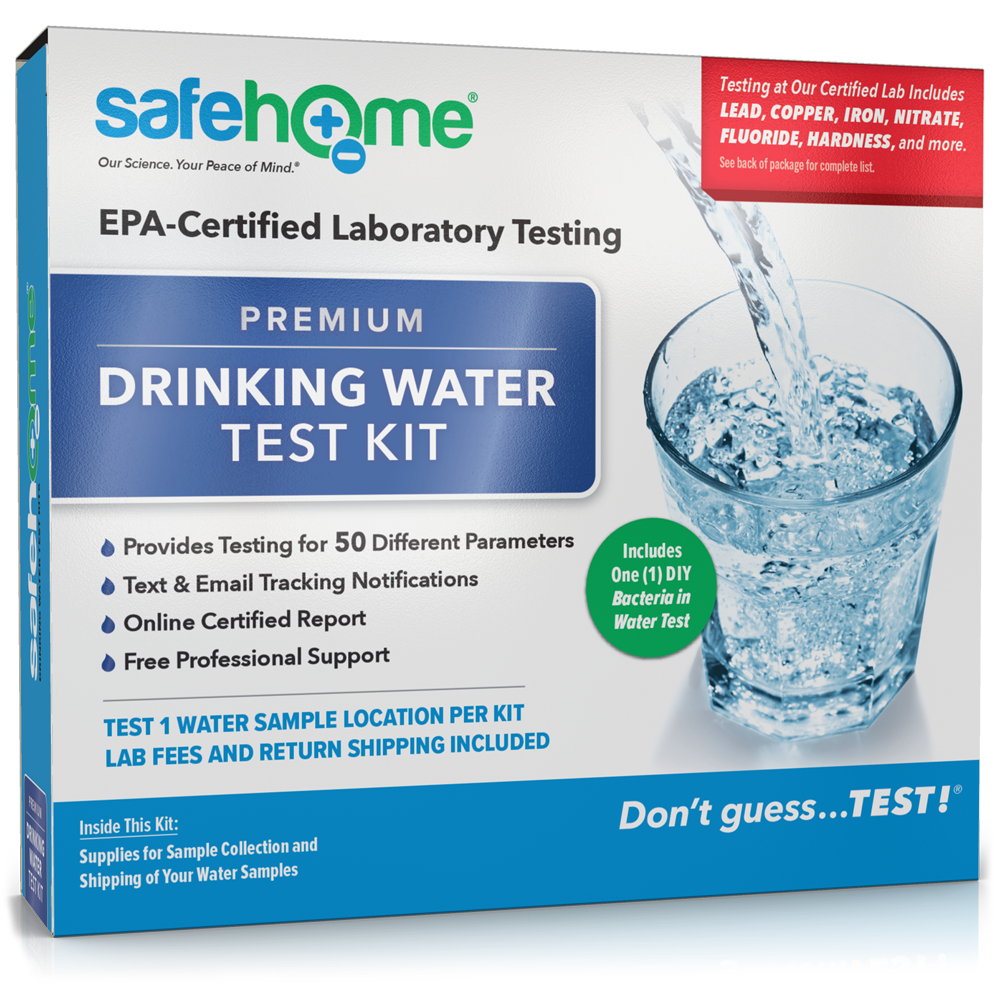Find Trusted Water Testing Services Near Me for Clean Drinking Water
Find Trusted Water Testing Services Near Me for Clean Drinking Water
Blog Article
Learn Exactly How Water Testing Can Identify Contaminants and Secure Your Family's Health
Recognizing the value of water screening is important for protecting your family's health, as our water supply can nurture hidden risks. By discovering the auto mechanics of water testing, one can uncover the unnoticeable threats prowling in relatively beautiful water sources.
Importance of Water Examining
Identifying the critical duty water plays in sustaining life, the significance of water screening can not be overstated. Ensuring that water is totally free from dangerous materials is crucial for preserving healthy and balanced areas and communities. Water Testing Services Near Me.
Water screening acts as a proactive measure to recognize possible threats that may jeopardize water top quality. Through systematic analysis, it assists detect physical, chemical, and biological parameters that could posture dangers to human wellness. Regular screening enables the very early discovery of concerns, assisting in prompt treatments to stop extensive contamination and linked health problems.
Moreover, water screening supports regulative conformity, guaranteeing that water service providers satisfy well established security standards and guidelines set by governmental authorities. It cultivates openness and liability, building public trust fund in the water system. Screening supplies useful data that informs water monitoring methods, allowing sustainable usage and conservation of this priceless source.
Essentially, water screening is an indispensable device that safeguards public health and wellness, ensures governing adherence, and promotes the sustainable administration of water resources. Its value in protecting both individuals and neighborhoods can not be undervalued.
Typical Water Contaminants
Amongst the various elements that can compromise water high quality, common water pollutants consist of a variety of physical, chemical, and organic compounds that position substantial dangers to human wellness and the environment. Physical contaminants frequently entail sediments or organic materials suspended in water, which can impact clearness and preference. Chemical contaminants include a wide range of materials, including pesticides, herbicides, metals like lead and mercury, and commercial chemicals. These chemicals can penetrate water materials with farming runoff, commercial discharges, or leaching from pipes and storage containers.
Biological pollutants, largely microorganisms, infections, and protozoa, occur from human and animal waste entering water systems. Microorganisms such as E. coli, Giardia, and Cryptosporidium are notorious for triggering stomach diseases and can be especially dangerous to young kids, the elderly, and those with jeopardized body immune systems. Nitrites and nitrates, typically coming from fertilizers, position one more wellness danger, particularly to infants, potentially causing conditions like methemoglobinemia or "blue baby syndrome."
Furthermore, arising impurities, including drugs and personal treatment items, have increased issues due to their perseverance and unidentified lasting impacts. Comprehending these contaminants is essential for carrying out effective water therapy methods and making certain secure drinking water.
How Water Screening Works
Recognizing the spectrum of pollutants in water emphasizes the value of effective screening approaches to safeguard public health and wellness. Water testing is an organized procedure designed to recognize and measure numerous impurities that could posture risks to human health.
When examples are accumulated, they undergo lab evaluation utilizing various strategies. Chemical screening frequently includes spectrometry or chromatography, both of which can recognize and measure certain chemical substances. For microbiological screening, methods such as membrane layer purification or enzyme substratum tests are made use of to spot pathogenic bacteria. Furthermore, physical characteristics like turbidity, ph, and color are analyzed to give understanding right into the overall quality of the water.
The specific techniques used in water screening depend upon the specific pollutants of problem and the water's planned usage. By regularly applying these strenuous screening procedures, scientists and public wellness authorities can make sure the security and quality of water, thus safeguarding communities from possible health and wellness hazards.
Picking the Right Examination
The initial step is examining the water resource-- be it metropolitan, well, or surface area water-- as each has distinctive threats. Municipal water could require testing for disinfectant results, while well water might need testing for nitrates, microorganisms, and heavy metals.
Next, take into consideration current occasions and ecological variables. Neighboring agricultural activities might necessitate testing for pesticides and herbicides, whereas industrial zones might require checks for chemical contaminants. Furthermore, any type of modifications in water preference, smell, or look should trigger certain screening for typical pollutants like lead, chlorine, or organic pathogens.
Professional water screening solutions offer detailed sets that target a broad range of potential pollutants. These sets usually straighten with requirements established by the Epa (EPA) or regional health departments. For a much more tailored strategy, seeking advice from with a water quality expert can provide understandings into which certain examinations are required based upon local concerns and individual wellness requirements, guaranteeing the defense of your house's wellness.

Preserving Water Safety

In addition to testing, correct maintenance of water supply plays a crucial role. This includes servicing and checking plumbing systems, tank, and septic tanks to avoid leakages or backflow that might introduce pollutants - Water Tesing Services Tampa. Using water filtering systems designed to address specific neighborhood concerns can additionally guard versus pollutants, supplying an additional layer of security
Public awareness and education and learning are just as crucial in keeping water safety. Communities should be educated concerning prospective risks connected with neighborhood water resources and the necessary actions to alleviate them. Encouraging public participation in water safety and security campaigns promotes a collective duty that Extra resources improves general effectiveness.
Inevitably, a detailed strategy that incorporates routine screening, system upkeep, and community participation is essential in guarding water high quality. By doing so, families can be assured of tidy and risk-free water, securing their health and health.

Verdict
Routine water screening is crucial for determining impurities such as bacteria, hefty metals, and chemicals that posture health dangers. By analyzing water samples, hidden hazards can be found, guaranteeing the stipulation of secure drinking water. This positive method aids create a much healthier environment and assists in educated decision-making regarding water security. Selecting suitable screening approaches and keeping alertness in water high quality are crucial steps in guarding public wellness and ensuring the wellness of all family participants.
Understanding the importance of water screening is important you could try this out for protecting your household's health and wellness, as our water supply can harbor undetected threats.Water testing offers as a proactive procedure to determine possible hazards that may compromise water quality.Moreover, water testing supports regulatory conformity, making certain that water service providers satisfy well established security standards and standards set by governmental authorities. Local water may require screening for disinfectant by-products, while well water may need testing for nitrates, bacteria, and hefty metals.
Normal water screening is an essential element in maintaining the top quality of water resources, allowing prompt treatments before pollutants reach unsafe degrees.
Report this page